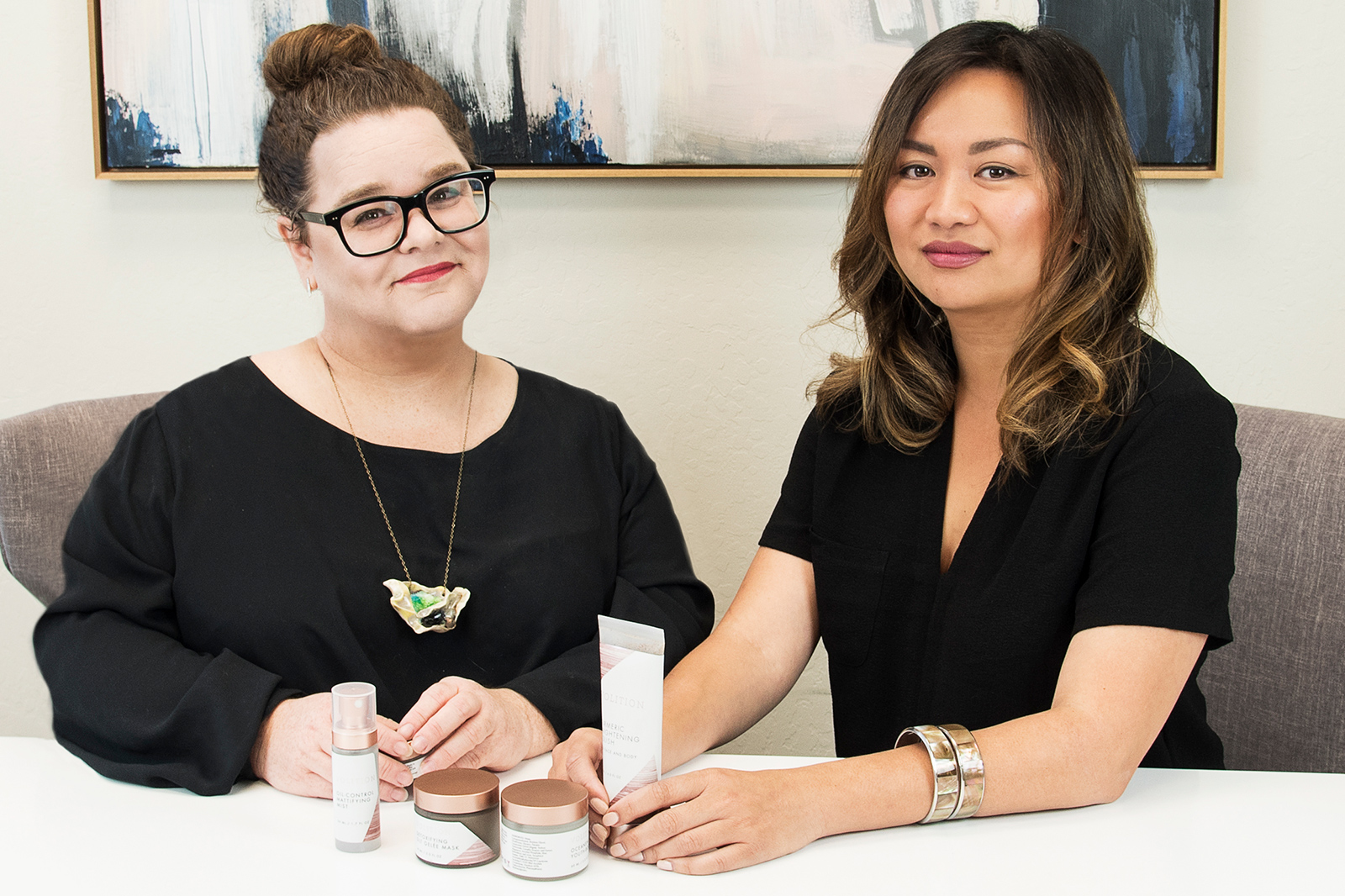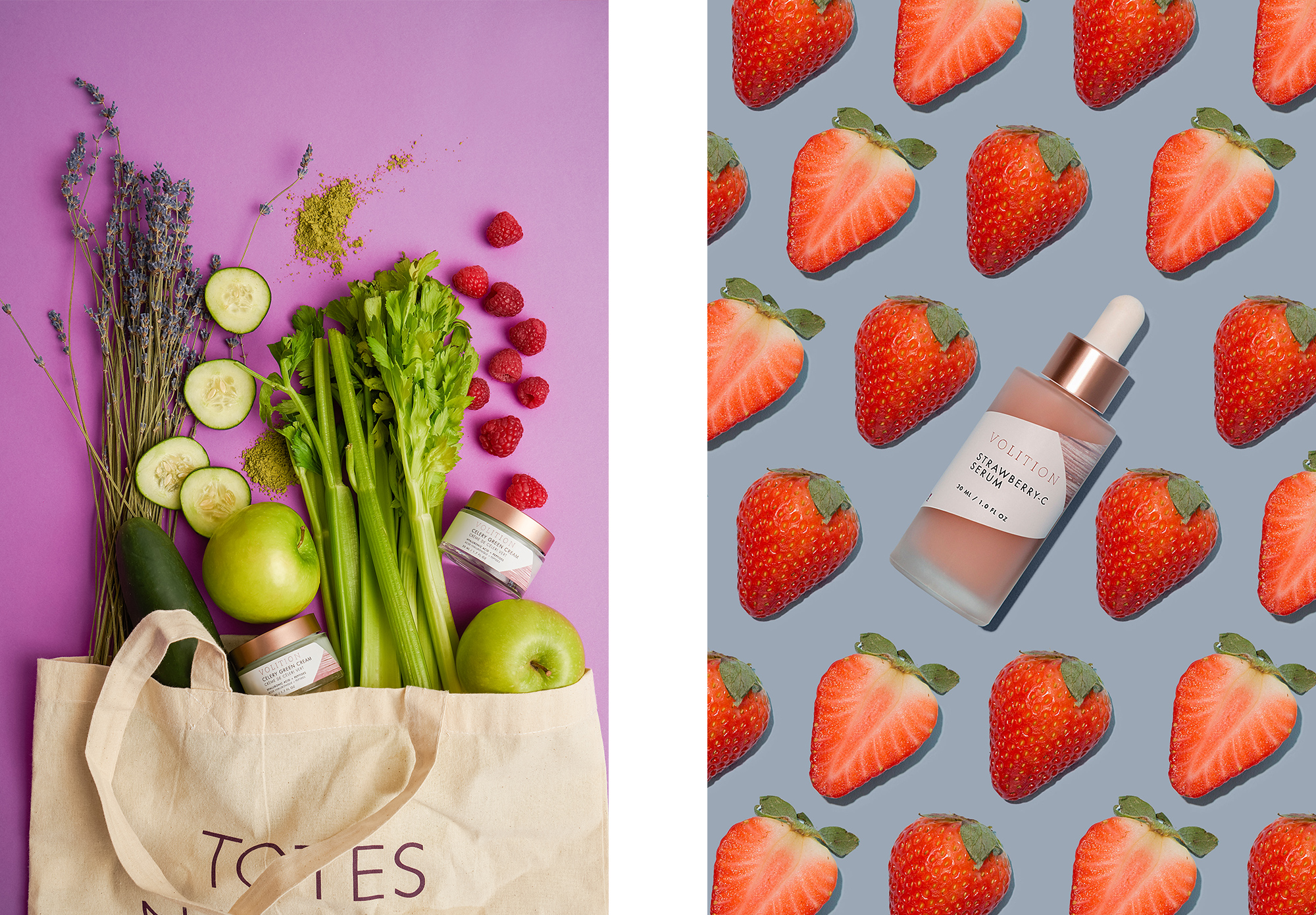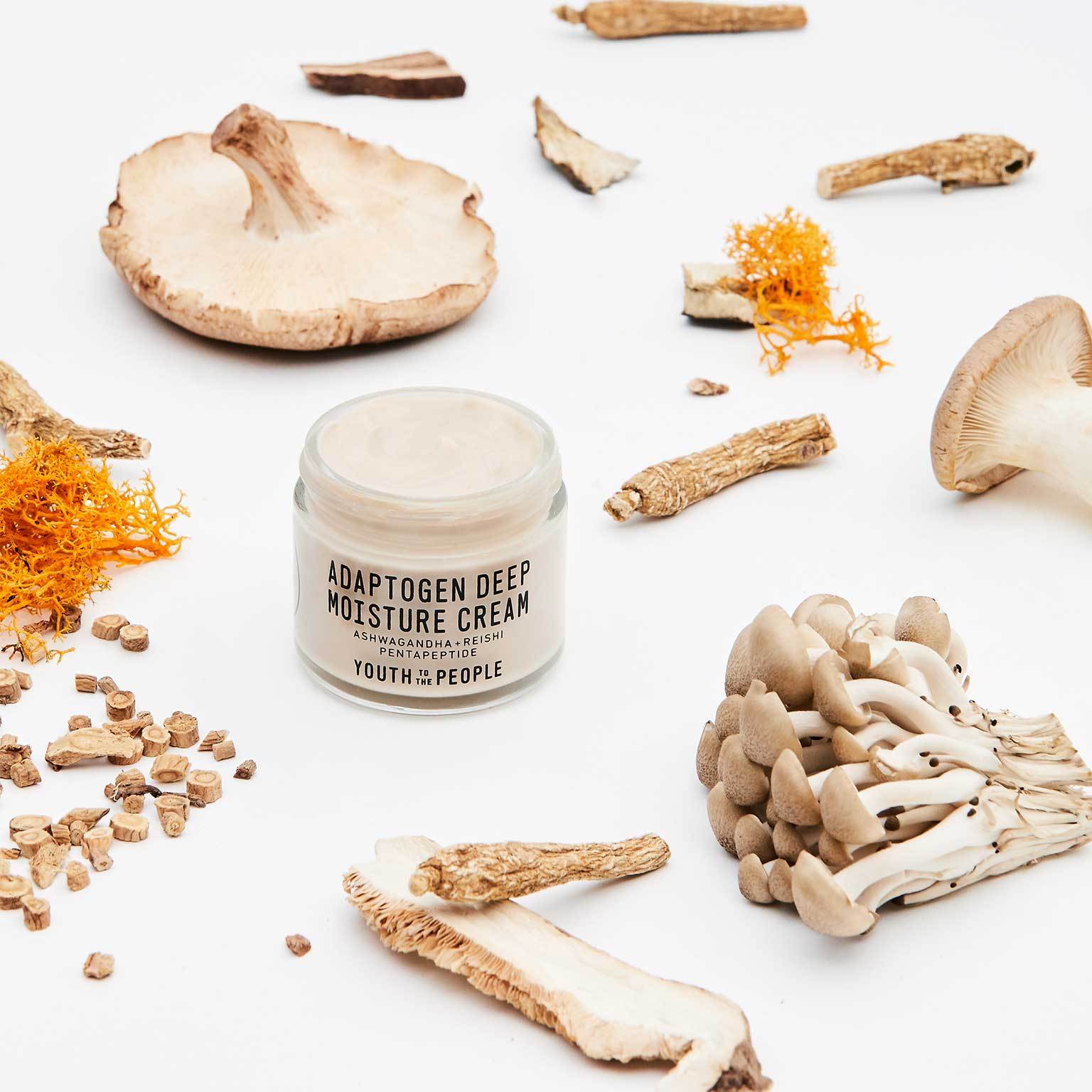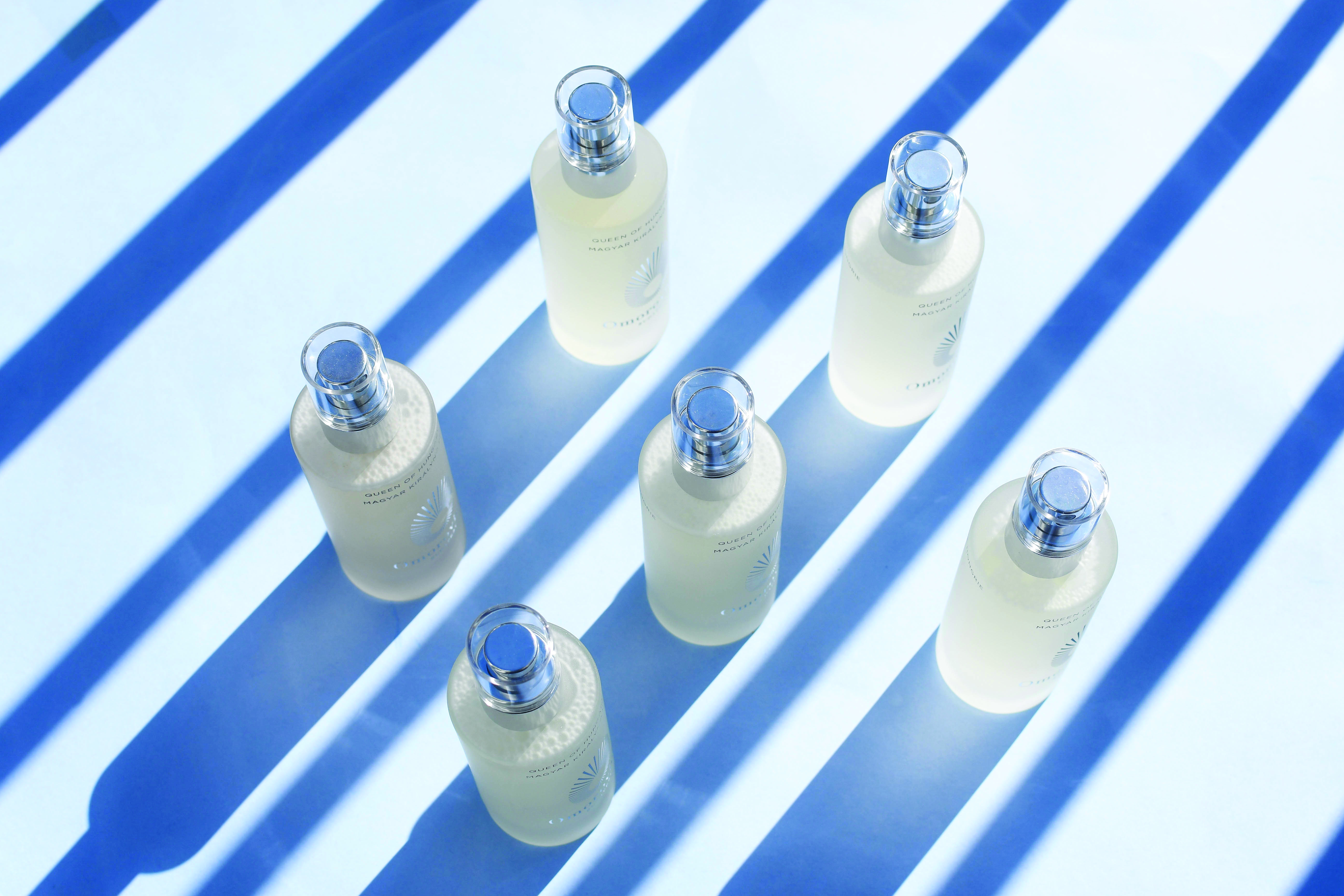Volition Beauty is Reinventing the Industry with a Crowd-Sourcing System
The power of the crowd.

In the beauty industry, people are often overlooked. Marketing blankets over everybody with a glossy sheen. Things that are too niche or (more likely) too real, go unrepresented. The team at Volition Beauty, a crowd-sourced, consumer driven skincare company, doesn’t like to use the word niche in their office. “We think it’s a bad word,” says co-founder Brandy Hoffman. They prefer the term ‘under-served.’ “We want to serve,” she says. More specifically, they want to serve those who go overlooked and offer a correction to the oversights of the industry.
Brandy and her fellow co-founder Patricia Santos, who met while working at the skincare company Algenist, bonded over their mutual passion for beauty and asked each other what changes they could make in the industry. They found their answer in consumer-facing product development. They wanted to ask the consumer to pitch the products and support others ideas through voting on them, rebuilding the industry from the ground up with micro- entrepreneurship at the centre.
In doing so, they have inadvertently provided a platform for people to pull back the veil of the beauty industry, and to represent themselves in genuine ways. “Having cancer isn’t aspirational,” Brandy points out, “and I don’t think I’ve ever seen a beauty ambassador that has cancer.” She’s referring to Deanna, a Volition innovator and the creator of Mission Brows, a lace brow wig for women suffering from hair loss. When Deanna underwent chemo, it wasn’t the loss of her hair that disturbed her—but the loss of her brows which had once been dark and full. She submitted her idea for Mission Brows to Volition’s platform and her peers voted to have the product made, proving that representation in the beauty industry on all levels is a matter important to consumers.

Left: the Celery Green Cream developed by gold medal gymnast Nastia Liukin. Right: Strawberry C Serum developed by a student, Varika, who was inspired by a Marilyn Monroe beauty hack.
Believe it or not, “beauty has a ton of product failures,” says Brandy. But, with the big cosmetic companies, there is a lot of money available to absorb those failures. The process of Volition’s product development is encoded with the assumption that there is a market that needs (and wants) what is made. Innovators like Deanna submit their idea to Volition through their website where they are then examined to determine if the idea is possible— “we get so many submissions that are Jetson-like,” Brandy laughs. If the product is possible, it is then vetted for safety. Does it meet their clean beauty standards? Can they make it economically? And most importantly: is there a point of difference? Does this product already exist? Volition doesn’t make products that are available elsewhere, that’s the point. If an idea is submitted that is already available, the team will point the consumer in the right direction.
There are over 400,000 people in the Volition community who interact with the platform in different ways like submitting ideas and voting on the products that make it past the initial review process. Less than one per cent of the products that are submitted get put into production, but since 2016 they have released 22 products that bridge the gap left by large cosmetics companies.
Once a product is successful, it is matched to the lab best equipped to develop it, and the innovator is tasked with testing and approving the formulations. They work with the brand team on naming and mobilizing a following. They become the face of their product and share the revenue. Through Volition, people like Deanna who start with an idea or people like chemist and lab owner Julie who start with an ingredient are empowered by the opportunity to be the voice of a company in an industry of celebrity and shiny ambassadors.
_________
Never miss a story. Sign up for NUVO’s weekly newsletter, here.



